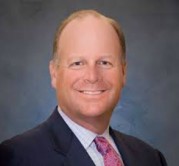Why CEO Institute is a Sell-Out

Before coming to CUES, I had heard a lot of good words in the industry about CEO Institute. This spring, I had the great fortune to finally participate, attending the full week of CEO Institute I at the University of Pennsylvania’s Wharton School and also the last day of CEO Institute III at the University of Virginia’s Darden School.
I was totally blown away by the program.
After my recent experience, it’s no surprise to me that all three weeks of CEO Institute sold out this year and are on pace to do so again in 2014. Why?
Great presenters. Attending CEO Institute truly did feel like going back to school—only I listened a lot more this time than back in the ’80s, because the professors were so good. For example, at Darden, I learned a lot about culture and individual leadership from Alexander B. Horniman, Ph.D., Killgallon Ohio Art Professor. Horniman drew a triangle with “performance” at the top vortex, “learning” at the bottom left vortex and “fun” at the bottom right vortex. This was to illustrate the idea, shown clearly by studies, that if you have a learning environment in your organization that also is fun, it will lead to greater performance.
Horniman also explained that conflict is how an organization thinks. In other words, if you have a meeting, you want ideas on the table that challenge one another so the team has to consider different perspectives, think more deeply and, ultimately, get the best decision for the organization. When the team members leave the meeting, they all have to be on the same page, but in the meeting, it’s better to hash everything out.
Great messages. Another important Darden takeaway was that credit unions, though by and large small organizations, need to be loud in terms of connecting with members and potential members, and loud about being very good, strong local contributors. CUES is a loud company. With not quite 40 employees, we produce a huge volume of conferences and content. If you walk out in the industry and ask about CUES, the perception often is that CUES is much larger than it is.
In contrast to Darden’s focus on culture and individual leadership, Wharton was all around strategic planning and thinking ahead, including exercises that got you to focus long term. At Wharton, you use the Sim CU™ simulation tool to see how your work would affect an imaginary credit union in various market conditions. To do the exercise, you’ve got to think much broader than that single idea because there are a whole bunch of side effects that happen. For example, as you made a decision to build a new branch, it had a trickledown effect into all areas. You could do all the homework in the world, but there are still other implications to putting a branch in place that you might not have been able to project beforehand.
Great networking. I looked around the room at both institutes and saw many people who shape the future of the credit union industry. That was quite powerful. Think of it. Sixty percent of the 900 people who have attended CEO Institute in the past have gone on to become CEOs.
Next year I’ll be attending CEO Institute II at Cornell University’s Johnson Graduate School and possibly more of Darden. We’re already signing people up, so if CEO Institute is something you are considering for 2014, I would do it early. The universities have a limited amount of space and I fully expect the institutes to fill again.
It’s also perfect timing to nominate someone to be the CUES Next Top Credit Union Exec, with its top prize of a free spot (including registration, accommodation and economy airfare) to any two CUES’ CEO Institutes—one in 2014 and one in 2015. Look forward to seeing you or your team member there!





